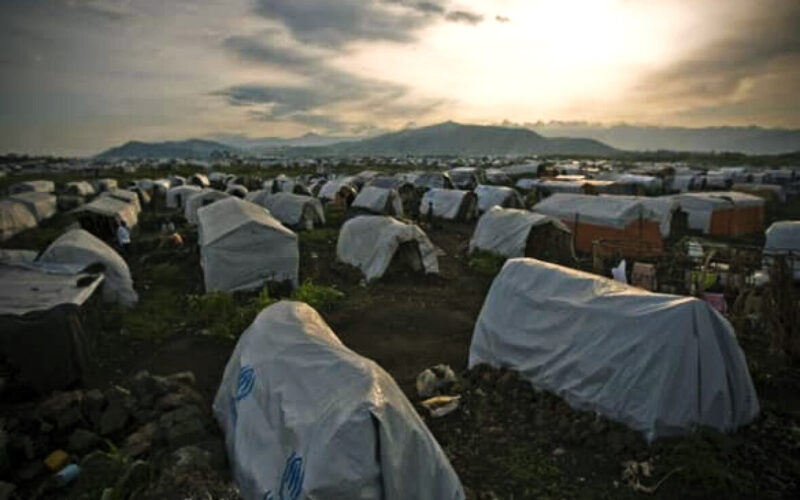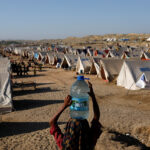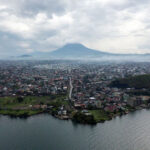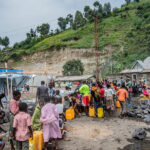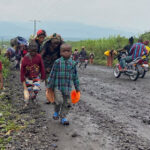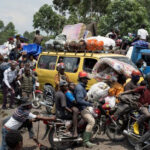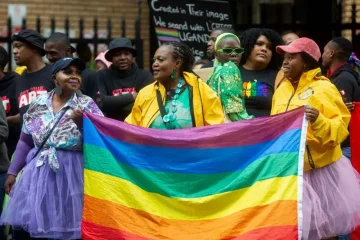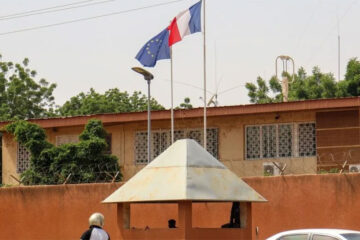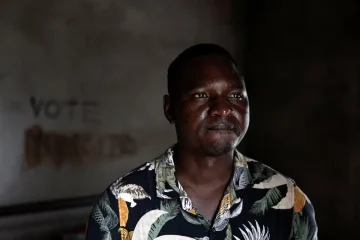[tta_listen_btn listen_text=”Audio” pause_text=”Pause” resume_text=”Resume” replay_text=”Replay”]
FOUR men with machetes were hard on their heels as a group of women raced through the dense forest surrounding east Congo’s city of Goma, desperate to reach a displacement camp they had left to collect firewood.
One tripped on a stone and fell. She had no time to react before one of the men caught up.
“He raped me,” she recalled two weeks later in Bulengo, one of several camps near Goma sheltering about 600,000 people that have fled conflict zones.
“He told me that if I screamed he would kill me,” she said. “I felt dirty.”
The 35-year-old victim, who did not want to be named, is just one among hundreds of displaced women who have been sexually assaulted when they left the camps to get wood or food.
Medical charity Medecins Sans Frontieres (MSF) treated more than 670 women – or nearly 50 per day – at three sites between April 17 and 30 who had been subjected to sexual violence.
Over half were assaulted by armed men, it said last week, noting that its figures were likely to be underestimated.
Rape has been widely documented as a weapon of war used by armed militia groups that have been active in Congo’s east since the end of two civil wars waged between 1996 and 2003.
Unrest escalated after the M23 group staged a major offensive in North Kivu province last year, forcing hundreds of thousands to flee as the army fought back.
Many have sought refuge in crowded camps like Bulengo, where humanitarian workers are struggling to cope.
Hungry mouths to feed push women outside the camp in search of food and firewood to sell, making them vulnerable to sex crimes, said MSF worker Delice Sezage Tulinabo.
Reports of gender-based violence in North Kivu were up more than a third in the first three months of 2023 compared with 2022 when more than 38,000 cases were recorded, UNICEF said this week.
Most survivors reported being attacked by armed and displaced men in and around the camps.
Humanitarian workers have also raised concerns about the army. In Bulengo, women said they had to pay soldiers to enter the forest. Some of them also commit rape, they added.
Defence Minister Jean-Pierre Bemba said the allegations were being investigated.
Yvonne Tumaini Asifwe, 55, decided to stop venturing outside after two of her friends were raped. But she is already feeling the pinch.
“What are we going to eat?” she asked.

